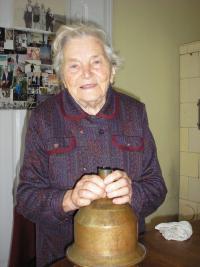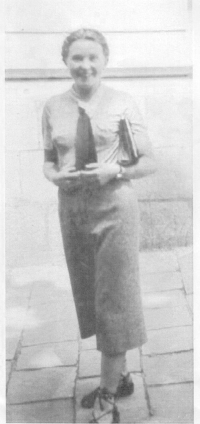The Germans whose farm we inherited were crying

Stáhnout obrázek
Born in Molchadz’ (Polish: Mołczadź) (Navahrudak, Polish: Nowogródek, voivodship) on 28 July 1915. Her parents had their own farm. After completion of primary school in her hometown Walentyna Suryn graduated from a teacher-training college in Slonim (Polish: Słonim), was on an unpaid annual teaching practice and, in 1936, started to work as a teacher at a one-grade school in the village of Teodorowce. In 1939, she was admitted to the Department of Pedagogy of the Lviv University, but she came back to Molchadz’ after the outbreak of World War II. In 1940, she started working at a country school with Belarusian as a teaching language. In 1941, she married Jerzy Suryn, also a teacher. In 1945, together with her husband and daughter she left for the “Regained Territories” and reached Krzyż on 10 May 1945. Together with her husband she took a farm near Krzyż, where she worked until 1949. Between 1949 and 1951 she worked at a country school in Herburtowo near Krzyż, and between 1951 and 1970 at the primary school in Krzyż. After her retirement in 1970 she continued to work at school. Since the death of her son Andrzej Sulima-Suryn Walentyna Suryn has been taking care of his poetic legacy and publishing his volumes of verse. She lives in Krzyż.

